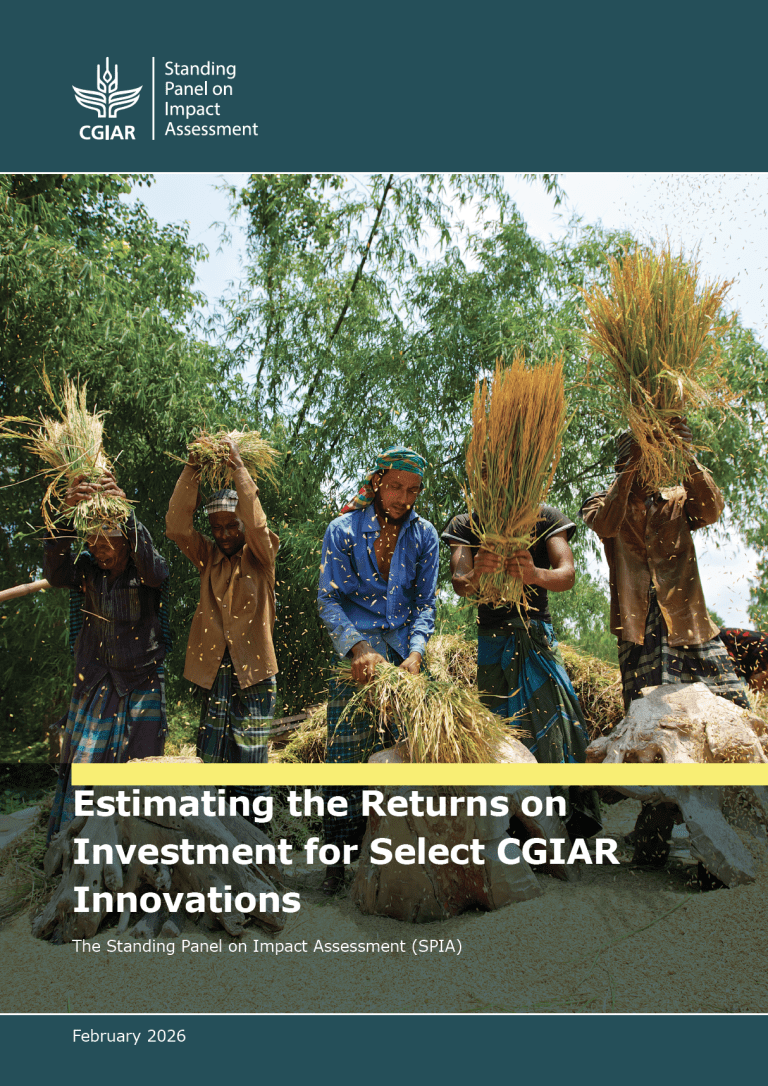Why do some agricultural innovations thrive while others fail to take root? Even though agricultural innovation is crucial for food security and sustainable development, not all technologies succeed equally. Some technologies are not widely adopted by farmers due to various constraints while others may not have the intended effects or may come with undesirable side-effects. Hence, understanding which types of technical and institutional innovations have the largest potential for widespread adoption and positive impacts is crucial for effective policy-making and research priority-setting.
The “SPIA Viet Nam Report 2024: Global Ambitions, Sustainable Pathways” provides an overview of several years of SPIA research on the relevance and adoption of CGIAR-related innovations in Vietnam. The analysis covers a very broad range of innovations, including technologies in crop production (with a particular focus on rice and cassava), aquaculture, environmental conservation, climate change adaptation, as well as mechanization technologies, digital innovations, and various sustainable intensification practices.
The SPIA work underscores the significant role of the CGIAR and its Centers in Vietnam’s agricultural sector. Over 100 CGIAR-related technologies and policy contributions were identified in the country, out of which 19 have already been adopted by near 4 million households. This estimate emphasizes the CGIAR’s potential contribution to agricultural and possible economic development. However, given that millions of farmers have yet to be reached, this also highlights the vast potential for further efforts to promote sustainable agricultural innovations in Vietnam, along with gaining a deeper understanding of the motivations that would drive farmers to implement them. This is particularly relevant given Vietnam’s critical position in the global food system, the challenges of climate change and environmental degradation it faces, and the government's strong commitment to transform the agricultural sector towards sustainability.
The SPIA Report is an important milestone, not only because it showcases the reach and potential of many innovations among regions of Vietnam with diverse agroecological and socioeconomic conditions, but because it offers rigorous documentation of the systematic research that SPIA and its partners have conducted regarding tracking innovation adoption. This research was carried out by combining multiple methodological approaches such as stocktaking of innovations, nationally-representative surveys, application of DNA fingerprinting techniques, among others.
The added novelty to the research is found when analyzing technology adoption in the small-farm sector, with the relevance of these methodological approaches being transparently discussed throughout, focusing on associated challenges. For instance, farm and household surveys can be associated with significant reporting errors, as respondents do not always know whether or not they have adopted a specific technology due to varying terminology and limited knowledge about these innovations. Thus, the SPIA Report provides valuable lessons for future study—not only in Vietnam but also in other countries.
Accurate tracking of agricultural innovations requires greater efforts and investments in advanced techniques, such as remote sensing and DNA fingerprinting. Expanding survey efforts beyond farmers – also including input providers, traders, consumers, and other stakeholders – could provide a more comprehensive understanding of adoption patterns and impacts, particularly in livestock, nutrition, and policy contributions.
Building on SPIA’s strong foundation, we are starting a new project “Dynamics of Agricultural Innovation in Vietnam – DAIV”, which is led by the Center for Development Research (ZEF), University of Bonn (Germany) and carried out in close partnership with Vietnam National University of Agriculture (VNUA). In DAIV, we will continue and update previous SPIA work and expand the efforts by integrating remote sensing approaches to track innovation adoption, conducting rigorous analysis of socioeconomic and environmental impacts of adoption, and carrying out qualitative interviews with farmers and other stakeholders to gain deeper insights into the underlying mechanisms and potential constraints. We look forward to this cooperation with SPIA and various other national and international partners.



